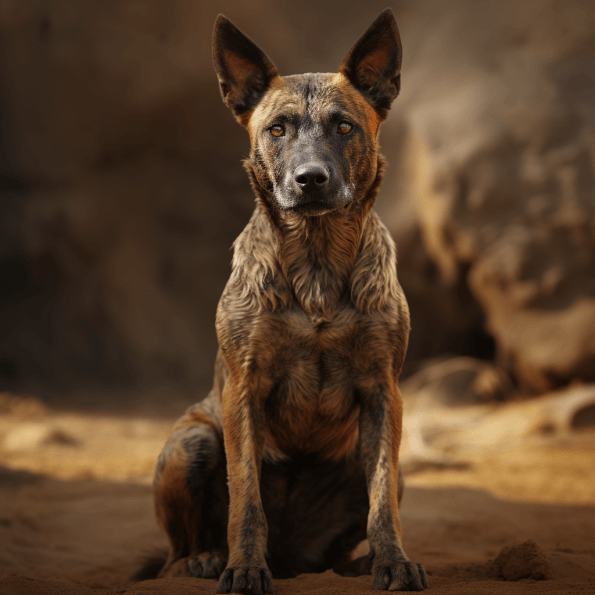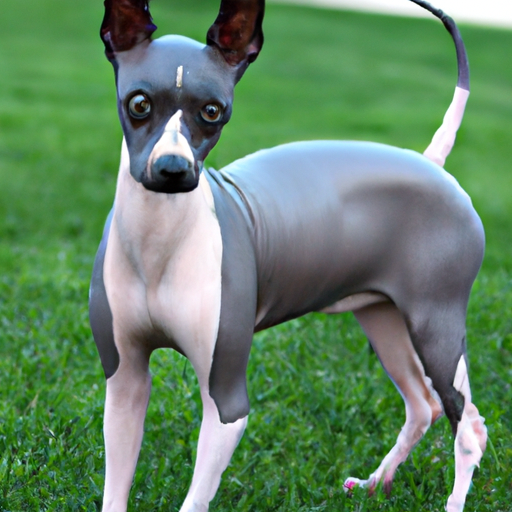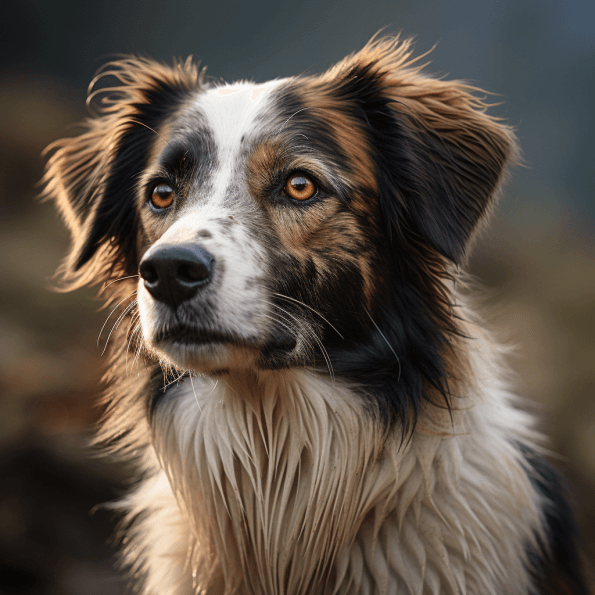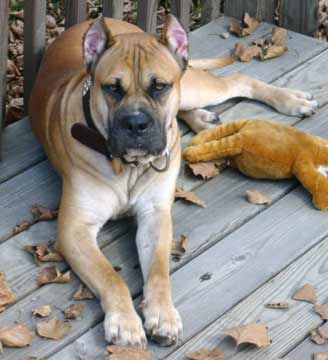Africanis – Dog Breeds
In the vast world of canine breeds, there lies a unique, endearing and often overlooked treasure – the Africanis. This captivating species native to Africa, often referred to as the ‘African Dog,’ is characterized by its tenacity, agility, and an untamed spirit that echoes the wild beauty of its homeland. As we journey together into the incredible qualities of the Africanis, your views on dog breeds are about to be beautifully transformed. With a depth of understanding into their traits, temperament, and lineage, you’ll soon see why this breed is every bit as worthy of attention and affection as its globally renowned counterparts.
The Origin of Africanis
The Africanis isn’t just a mere breed of dog. When we speak of Africanis, we’re referring to a group of indigenous South African dogs, a proud thread in the vibrant tapestry of African history. These dogs possess a rich lineage that embodies ancient roots and an intriguing migratory history stretching across various continents.
Ancestors of Africanis
Just as you have a lineage that can be traced back to your great-great-grandparents, so does the Africanis. Its origins are from the ancestors of the domestic dogs that were brought into the African continent by migratory human populations. These ancient humans moved from the Arabian Peninsula to Northern Africa approximately 8000 years ago, bringing dogs along with them.
Evolution and Generations
These native dogs began to adapt and evolve to suit their environment, understanding the lay of the land over countless generations. They developed agility and endurance to survive in the African bush. The dogs bred with one another forming a matrix of interbreeding dogs with little to no influence from foreign breeds. Due to these reasons, the Africanis breed demonstrates an impressive homogeneity despite not being selectively bred as most dog breeds are.
Migratory Journey to South Africa
Believe it or not, these dogs didn’t initially pop up in South Africa. They made their way there via a long migratory journey, again in the company of human populations, especially the Khoikhoi tribes. The Africanis’ journey down to south of the equator speaks volumes about the bond shared between dogs and humans throughout history.
Physical Characteristics of Africanis
One of the unique aspects that describe the Africanis is its physical appearance. At first glance, they may seem like any wild dog, but don’t be fooled. They are a breed that holds an identity of its own.
General Appearance
When you look at an Africanis, the first thing that might strike you is their athleticism. They have a lithe body with a streamlined build, built for speed and stamina. The head is moderately proportioned with a domed skull, and they have a well-muscled neck and shoulders.
Size and Weight Statistics
The average height of the Africanis is between 55 and 60 cm (males) and 50-55 cm (females). The weight varies but typically lies between 25 and 45 kg. These statistics, however, are an average and individual Africanis can vary.
Distinct Attributes of Africanis Coat
Africanis dogs have short and dense coats that effectively protect them from the harsh African sun and chilly nights. The coat color varies significantly, including shades of brown, black, brindle, or spotted.
Eye and Ear Characteristics
Their eyes are almond-shaped and typically dark brown, while their ears are medium to high-set, taking a V-shape. These details give Africanis their characteristic alert and keen expression—an expression of a dog ready to face any survival challenges.
Tail and Limb Aspects
Africanis dogs have a tail that is medium to long in length with a distinctive upward curve. The back limbs are strong and muscular, aiding their speed and agility—traits essential for their survival in the wild.
Africanis Health and Lifespan
Maintaining good health is essential for any living being, including the Africanis dogs. Certain measures are necessary to ensure their longevity.
Common Health Issues in Africanis
The Africanis breed is known for its resilience and adaptability. Generally, they are a healthy breed. However, due to their background as semi-wild dogs, they are more prone to contracting parasites, particularly in rural areas. Regular check-ups and preventative measures are recommended.
Average Lifespan
These dogs generally live a hearty life, with an average lifespan ranging between 10 and 12 years. Some even make it up to the age of 15, a testament to their hardy genetic makeup.
Healthcare Requirement and Recommendations
Due to their semi-wild background, Africanis dogs are robust and hardy, making them less prone to common ailments that affect other breeds. However, they should be vaccinated regularly, especially against rabies, and they need to be checked for parasites regularly. Like any dog, maintaining daily exercise and a balanced diet is paramount.
Africanis Behaviour and Temperament
In terms of behavior and temperament, the Africanis has a distinct personality, formed by its evolution in the wild, and its deep history and connection with people.
General Temperament
These dogs are known for being alert, territorial, and independent. They have strong guarding instincts and are protective of their family unit. They are also known for their loyalty and affection towards their family.
Interaction with Humans
Africanis dogs are typically wary of strangers but are very affectionate and loyal to their family, providing an excellent balance between protection and companionship.
Behaviour with Other Animals
Due to their wild instincts and their formation in a pack-setting, Africanis dogs generally get along well with other animals. However, their hunting instincts may provoke them to chase smaller animals.
Hunting and Preying Instincts
Their wild heritage entailed survival, often derived from hunting small game. These instincts are still present in the Africanis, though they are now largely kept as pets. This primal instinct can be seen when they display excitement in chasing small animals or toys.
Training Africanis
Although independent and somewhat strong-willed, Africanis dogs are intelligent and can be trained effectively with the right methods and patience.
Training Needs and Specifications
Being semi-wild dogs, they are inherently intelligent and have a high degree of survival intelligence. This means they are quick learners and can easily understand the “rules” of a home. However, their independent nature may require assertive but kind training methods.
Effective Training Methods for Africanis
Consistency and positive reinforcement is key when training an Africanis. They respond best to reward-based training. Regular socialization from a young age is also important to prevent them from becoming overly cautious or fearful.
Common Challenges in Training Africanis and Tips to Overcome Them
Due to their survival instincts, Africanis dogs can exhibit self-motivated behavior, which can be a challenge while training. However, by establishing clear leadership and using consistent, positive methods, this challenge can be overcome.
Africanis as a Pet
Africanis dogs can make for excellent pets in the right circumstances. Understanding their needs and compatibility is essential.
Compatibility with Families
Africanis dogs make faithful and loyal companions. They form a close bond with their family and are known to be protective, especially with children. However, they may be wary of strangers due to their territorial instincts.
Space Requirement
These dogs are agile and active and hence, they do require a good amount of space to run around and expend their energy. A house with a yard is ideal, but if that’s not possible, regular walks and playtime will help keep them happy and healthy.
Daily Care of Africanis
Typical care for an Africanis includes regular exercise, balanced nutrition, mental stimulation, and social interaction. Grooming needs are relatively low due to their short coat but routine check-ups are essential to keep them in good health.
Children and Africanis Interaction
Given their protective and loyal nature, Africanis are generally good with children. However, as with all breeds, supervision is always recommended during interactions between dogs and small kids.

Africanis Food and Nutrition
Proper nutrition is vital in maintaining the health of an Africanis.
Dietary Needs of Africanis
These dogs are usually active and require a balanced diet rich in protein. Foods rich in omega fatty acids are also beneficial for their coats’ health.
Recommended Foods and Portions
High-quality commercial dog food that meets their nutritional requirements is usually sufficient. The portion depends on their size and activity level. Feed guidelines provided by your vet or on the packaging of the dog food can guide you.
Foods to Avoid
Foods that are generally harmful to dogs such as chocolate, grapes, raisins, onions, garlic, alcohol, and large amounts of dairy should be avoided.
Africanis in the Wild
Despite being domesticated to a large extent, Africanis dogs still retain many characteristics from their time in the wild.
Wild Instincts and Traits
They possess strong survival instincts, are vigilant, and have excellent hunting abilities. They were traditionally used for herding livestock, indicating innate marking and guarding abilities.
Role in the Ecosystem
In the wild, Africanis dogs would form packs and act as predators, keeping the balance in the ecosystem. They were known to hunt small to medium-sized animals, which helped control these populations.
Interaction with Other Wild Animals
Their history in a pack-setting and co-existence with other animals means they generally get along well with other animals, but may instinctively chase smaller, prey-like animals.
Conservation Status of Africanis
Understanding the conservation status of the Africanis dogs helps us appreciate and protect their historical relevance.
Current Conservation Status and Classification
Currently, Africanis is not officially recognized as a breed by many kennel clubs and does not fall under any conservation status. However, within Africa, efforts are being made to keep the breed pure and maintain its historical integrity.
Key Threats to Africanis
The largest threat to Africanis is genetic dilution caused by interbreeding with other dog breeds. Other threats include loss of habitat and disease.
Conservation Efforts in Place for Africanis
In Africa, particularly South Africa, various organizations, such as the Africanis Society of Southern Africa, work towards recognizing these dogs’ cultural and historical significance and ensuring the survival of this indigenous breed.
Cultural Significance of Africanis
The Africanis is much more than a breed of dog – it’s a tangible section of African history.
Role of Africanis in African Cultures
Historically, these dogs have played a crucial role in African societies. They were used for hunting and protecting livestock, which was vital for survival in early societies. The Africanis is even thought to have spiritual significance in some cultures.
Symbolism and Beliefs About Africanis
Many cultures believed the Africanis dogs held spiritual powers, commanding respect within these societies, and even featuring in certain rites and ceremonies. They are revered to this day among many African tribes.
Africanis in African Folklore, Myths, and Stories
Immersed in cultural beliefs and practices, the Africanis naturally found its way into African folklore and stories. Their instinctive survival abilities, loyalty, and protective nature make them a recurring and admired character in such stories.
To understand the Africanis is to recognize its deep connection with the African continent—a unique breed that is a living repository of African history and culture.






